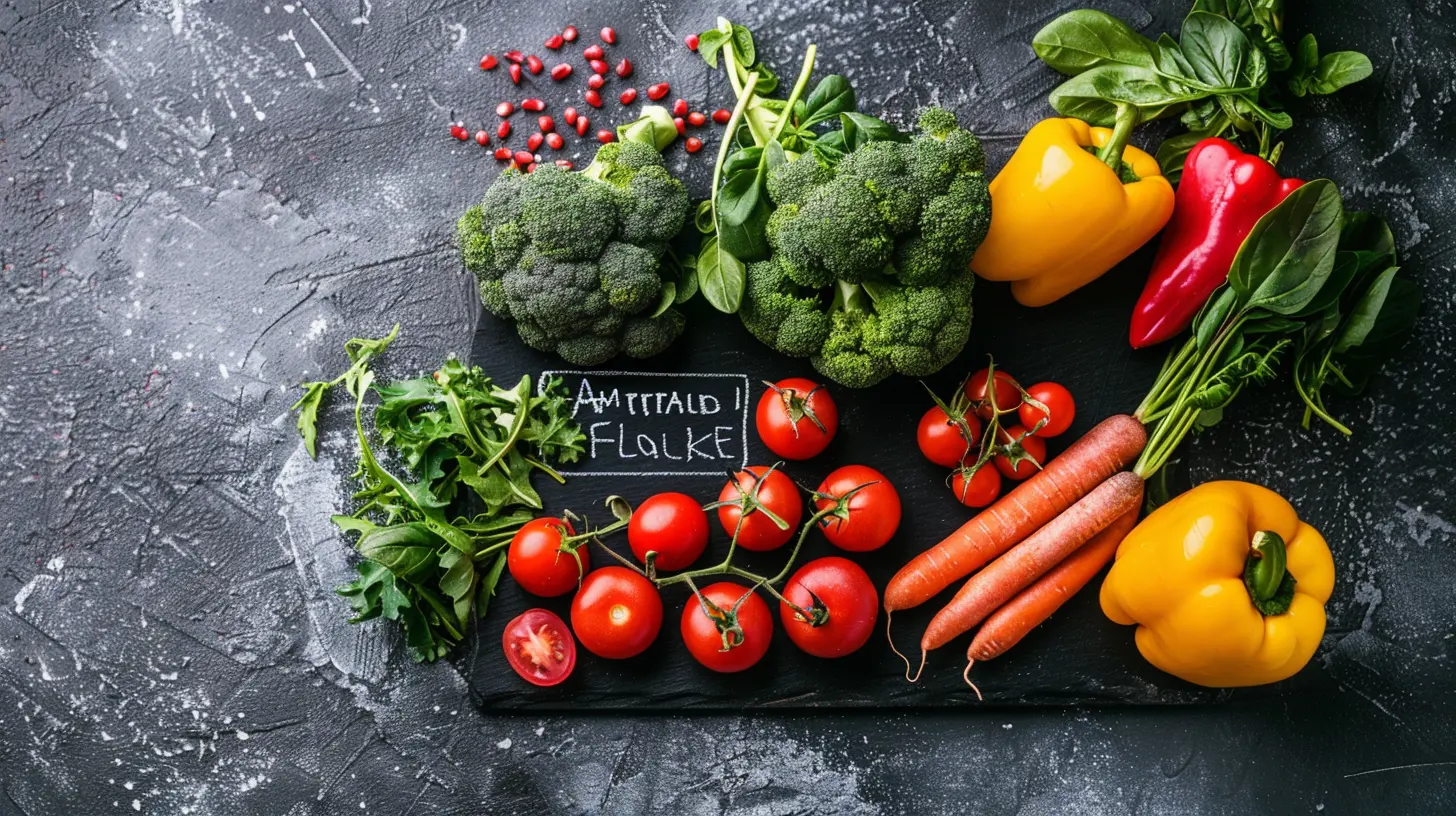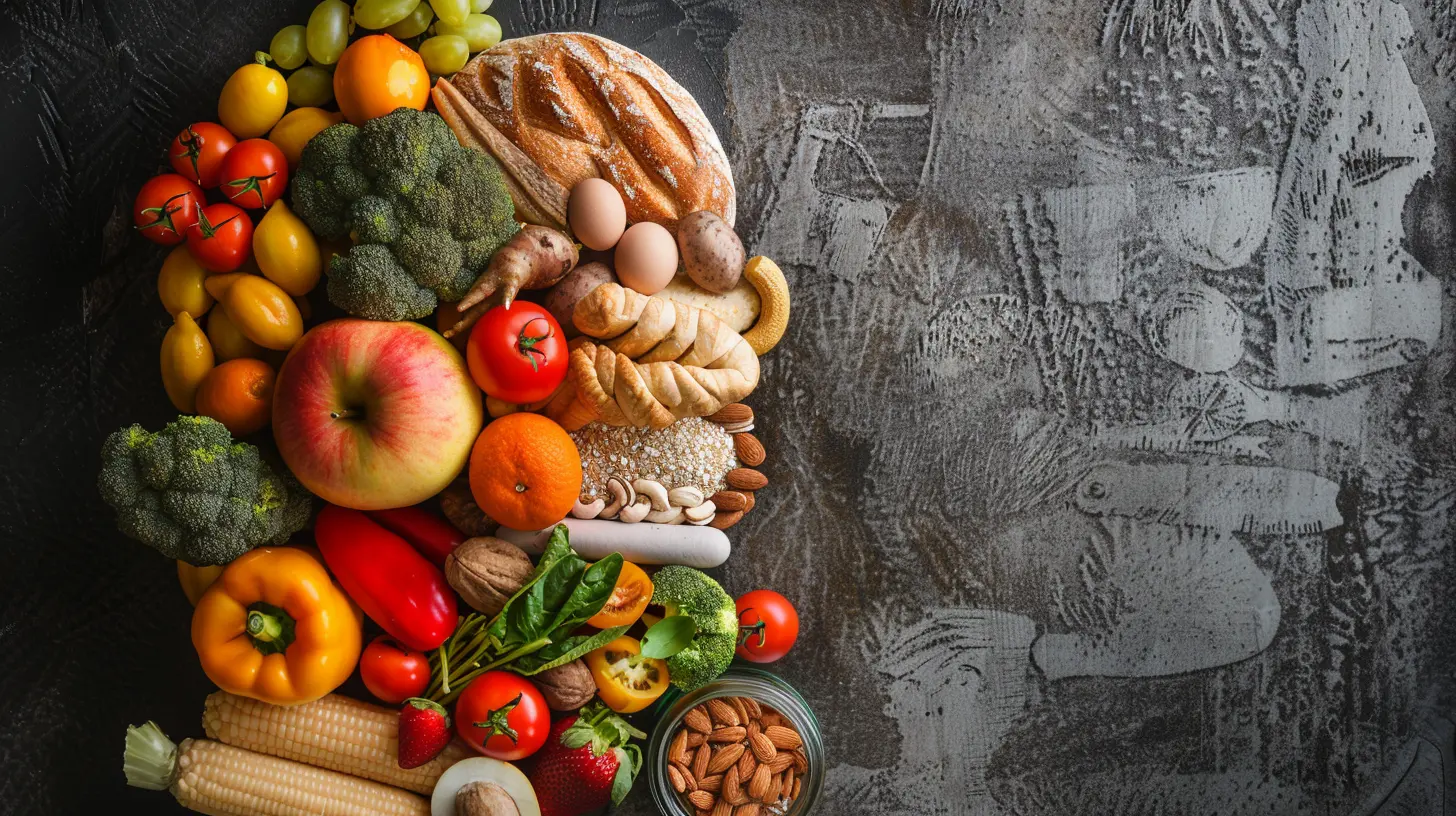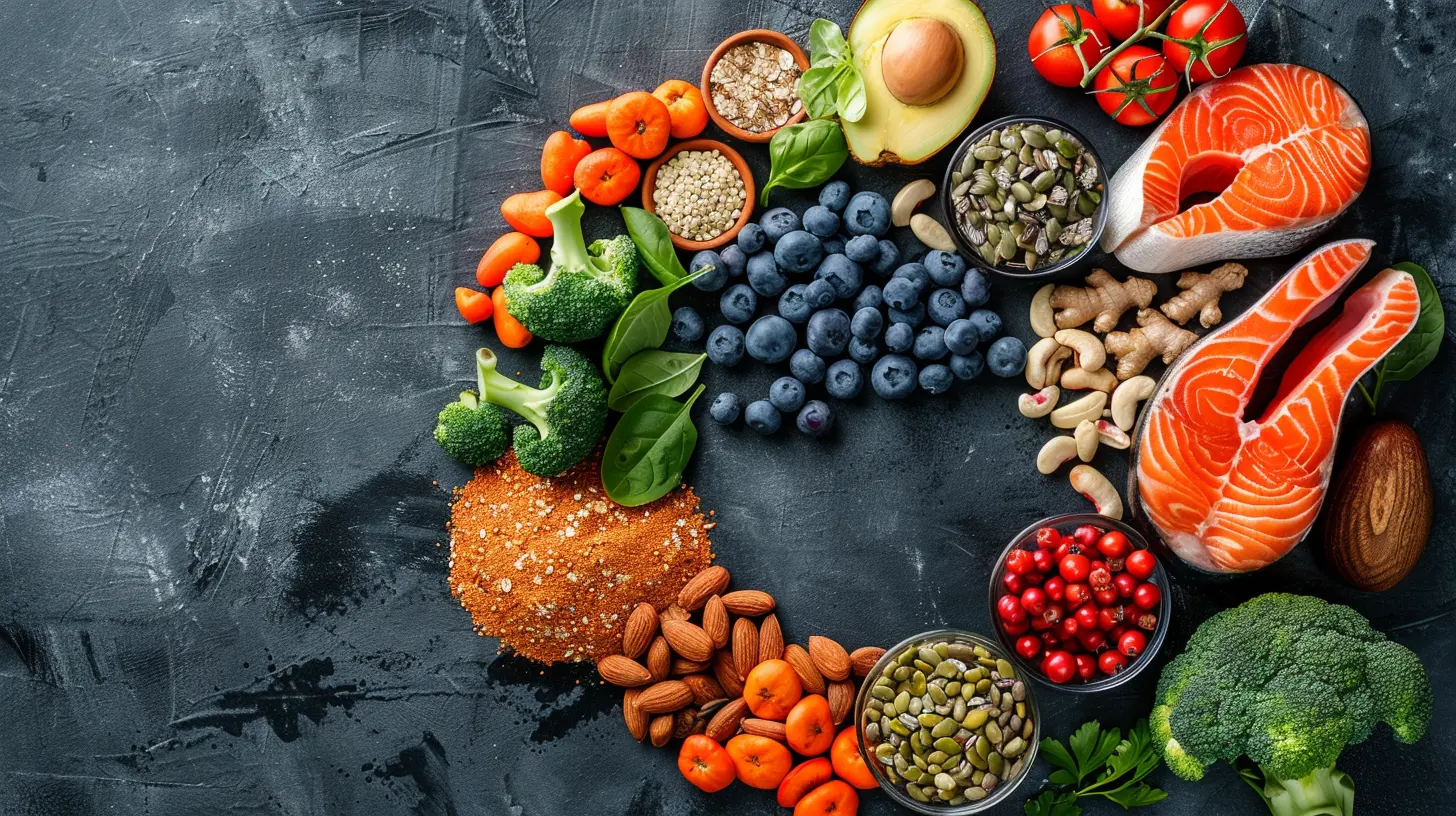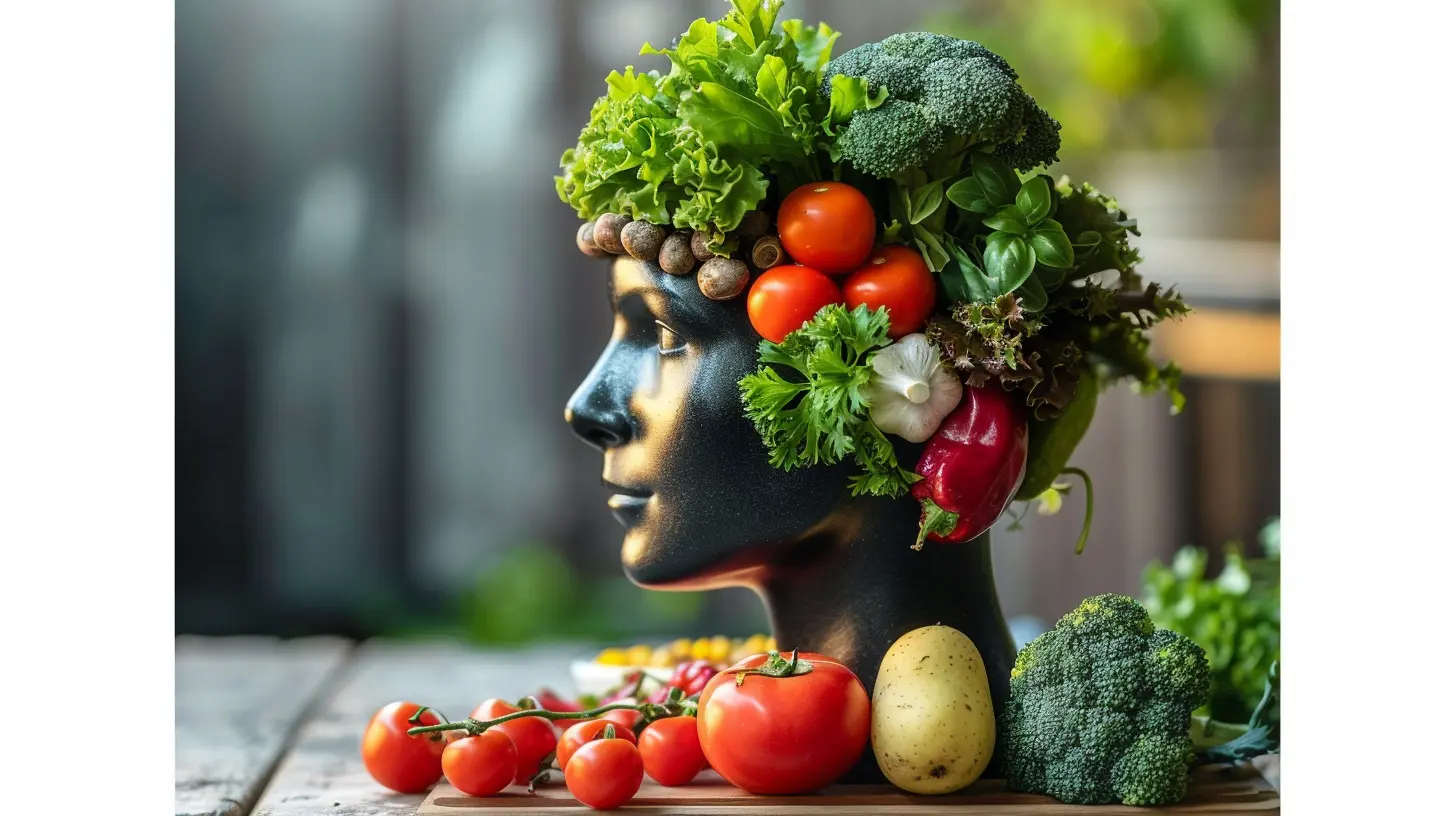The Role of Nutrition in Supporting Mental Health
17 November 2025
We’ve all heard the saying, “You are what you eat.” But have you ever stopped to think about how true that might be for your mental health? Sure, we know that eating a balanced diet helps with physical health—strong bones, better muscles, and a healthier heart—but what many people overlook is the strong connection between what goes into your body and how your mind functions.
In recent years, there’s been growing interest in understanding the role of nutrition in mental health. We’re starting to recognize that what we eat isn’t just fuel for our bodies but also for our brains. And when it comes to mental well-being, proper nutrition can make a world of difference.
So, let’s dive into how the food we consume impacts our mental health and how making a few simple changes to your diet could potentially boost your mood, reduce anxiety, and even ward off depression. Ready? Let’s go!
Why Nutrition Matters for Mental Health
You wouldn’t put diesel in a race car, right? It’s the same with your brain. Your brain is the control center for everything you do, think, and feel. It runs on the nutrients you get from food—vitamins, minerals, amino acids, and fatty acids. If you're not feeding your brain the right stuff, it won’t run optimally.Think of it like this: Poor nutrition is like putting low-grade fuel in your car. It might still run, but it’s not going to perform at its best, and over time, you’ll notice issues. Your brain works in much the same way. If you give it subpar fuel, you’ll eventually feel sluggish, moody, and mentally foggy.
The Gut-Brain Connection
Here’s where things get really interesting. You’ve probably heard of the gut-brain axis, right? It’s this two-way communication system between your digestive system and your brain. The gut is often referred to as the "second brain" because it has its own network of neurons and produces many of the same neurotransmitters, like serotonin and dopamine, which help regulate mood.What’s more, the bacteria in your gut play a significant role in this communication system. A healthy gut microbiome supports brain health, while an unhealthy one can contribute to mental health issues like anxiety and depression.
In short, what you eat directly impacts not just your body, but also your mood and mental clarity. So, if you’re feeling off mentally, it might be time to take a closer look at your diet.
Key Nutrients for Mental Health
There’s no magic pill when it comes to mental health, but there are several key nutrients that can give your brain a much-needed boost. Below, we’re going to explore some of the most important ones and how they can impact your mental well-being. Spoiler alert: This may inspire you to rethink what’s in your fridge.1. Omega-3 Fatty Acids
Omega-3s are the rockstars of brain health. Found in fatty fish like salmon, mackerel, and sardines, these essential fatty acids are critical for maintaining the structure of your brain cells. They also play a role in reducing inflammation, which has been linked to depression and anxiety.In fact, several studies suggest that people who consume more omega-3s are less likely to experience depression. And if you’re already feeling down or anxious, adding omega-3s to your diet might help lift your spirits.
Can't stand fish? No worries! You can also get omega-3s from flaxseeds, chia seeds, and walnuts.
2. B Vitamins (Especially B12 and Folate)
B vitamins are like the unsung heroes of brain function. They play a vital role in producing energy for your brain and keeping your neurotransmitters—like serotonin and dopamine—firing on all cylinders.Vitamin B12 and folate, in particular, are crucial for mental health. A deficiency in either has been linked to mood disorders, including depression and cognitive decline. Foods like leafy greens, eggs, and fortified cereals are excellent sources of these vitamins.
If you’re a vegetarian or vegan, it’s especially important to keep an eye on your B12 levels, as plant-based diets often lack sufficient amounts of this vitamin. You might want to consider supplements, but always consult with a healthcare professional before making any changes.
3. Magnesium
Magnesium is often called “nature’s relaxant,” and with good reason. It helps regulate neurotransmitters and keeps cortisol levels (your stress hormone) in check. Low magnesium levels have been associated with increased anxiety, depression, and even insomnia.You can up your magnesium intake by eating foods like almonds, spinach, avocados, and dark chocolate (yes, you read that right—chocolate can be good for you!).
4. Vitamin D
You know how you feel a little down in the winter when there’s less sunlight? That’s not just in your head. It’s because sunlight helps our bodies produce vitamin D, which plays a role in regulating mood.A lack of vitamin D has been linked to depression and other mood disorders. You can get vitamin D from the sun, of course, but also from foods like fortified dairy products, mushrooms, and fatty fish. If you live in a place where sunlight is scarce, you might want to consider a supplement.
5. Probiotics
Remember we talked about the gut-brain connection? Well, probiotics are key to maintaining a healthy gut. These are live bacteria that support your digestive system and keep your gut microbiome in balance.Research has shown that probiotics can help reduce symptoms of depression and anxiety. Fermented foods like yogurt, sauerkraut, kimchi, and kefir are excellent sources of probiotics. So, next time you’re feeling anxious, maybe skip the fast food and go for some yogurt instead!
Foods to Limit for Better Mental Health
Okay, so we’ve covered the good stuff, but what about the bad? Sadly, there are some foods that can mess with your mental well-being. If you’re struggling with mood swings, anxiety, or depression, it might be worth cutting back on the following:1. Sugar
We all love a sweet treat now and then, but too much sugar can wreak havoc on your mental health. Sugar causes your blood sugar levels to spike and crash, leading to mood swings, irritability, and fatigue. Over time, consistently high sugar intake has been linked to depression and anxiety.2. Processed Foods
Processed foods are often loaded with trans fats, refined carbs, and additives that can negatively affect your brain function. These foods can promote inflammation, which has been linked to mental health issues like depression.3. Caffeine
Now, don’t get me wrong, I love my morning coffee as much as the next person. But if you’re drinking too much caffeine, it can lead to increased anxiety and even disrupt your sleep, which is critical for mental health. Moderation is key here. Try to limit yourself to one or two cups a day and avoid caffeine in the afternoon.4. Alcohol
While a glass of wine may help you unwind, alcohol is actually a depressant. Regular alcohol consumption can interfere with the production of neurotransmitters and worsen symptoms of depression and anxiety. If you’re struggling with mental health, cutting back on alcohol might be a good move.
Practical Tips for a Brain-Boosting Diet
You don’t need to overhaul your entire diet overnight to see improvements in your mental health. Small, sustainable changes can make a big difference. Here are a few practical tips to get you started:- Eat the rainbow: Aim to fill your plate with a variety of colorful fruits and vegetables. Different colors often mean different nutrients, so the more variety, the better.
- Stay hydrated: Your brain needs water to function properly. Dehydration can leave you feeling tired, irritable, and unfocused, so be sure to drink plenty of water throughout the day.
- Snack smart: Swap out sugary snacks for brain-boosting options like nuts, seeds, or fresh fruit.
- Prioritize whole foods: Try to eat more whole foods, like fresh fruits, vegetables, whole grains, and lean proteins, and limit your intake of processed foods.
- Don’t skip meals: Low blood sugar can lead to irritability and fatigue, so aim to eat regular, balanced meals to keep your energy levels—and your mood—stable.
Conclusion: You Are What You Eat—Mentally and Physically
At the end of the day, your mental health is closely intertwined with your diet. While food isn’t a cure-all for mental health issues, it can certainly play a big role in how you feel on a daily basis.By focusing on nutrient-dense, whole foods and cutting back on processed junk, sugar, and alcohol, you can support both your brain and body in feeling their best. After all, what’s good for your body is almost always good for your mind. So next time you’re feeling off, take a moment to reflect on what you’ve been eating. Your brain might just be crying out for some better fuel.
all images in this post were generated using AI tools
Category:
Mental Health EducationAuthor:

Jenna Richardson
Discussion
rate this article
1 comments
Starling McCaw
Nutrition profoundly influences mental health, highlighting the intricate connection between diet and psychological well-being. Essential nutrients can enhance mood and cognitive function, while poor dietary choices may exacerbate mental health conditions. Prioritizing a balanced diet is crucial for optimal mental resilience and overall emotional health.
November 21, 2025 at 5:12 AM

Jenna Richardson
Thank you for highlighting the vital link between nutrition and mental health. Your insights on the impact of a balanced diet on mood and cognitive function are essential in understanding how we can support emotional well-being.


